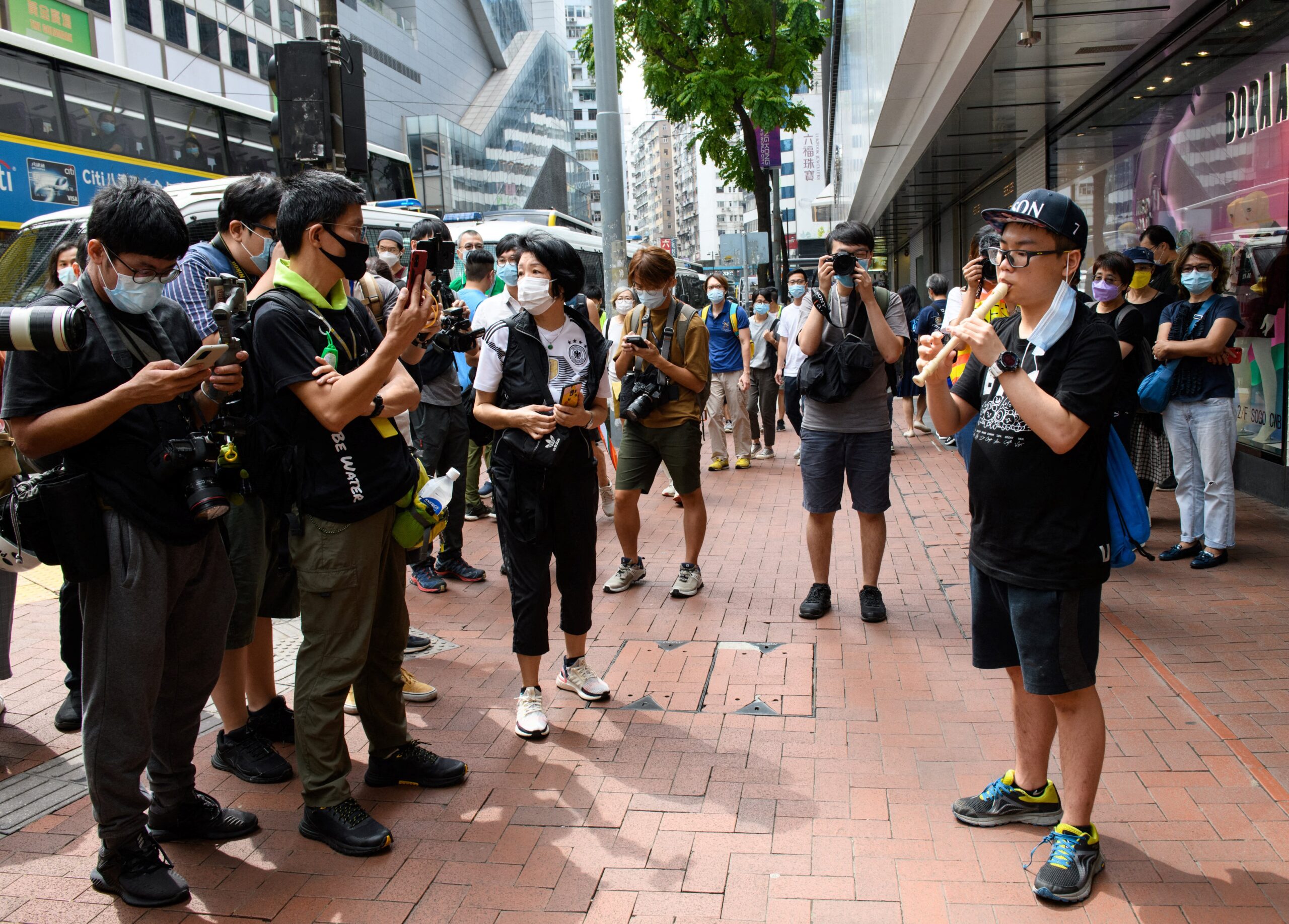
This photo taken on October 1, 2020 shows a man playing “Glory to Hong Kong” on a flute during the China’s National Day in Hong Kong. Hong Kong’s appeal court on May 8, 2024 banned “Glory to Hong Kong”, a protest song that emerged during the city’s massive democracy demonstrations in 2019. Agence France-Presse
HONG KONG — Hong Kong’s appeal court on Wednesday banned “Glory to Hong Kong,” a protest song that emerged during the city’s massive democracy demonstrations in 2019.
Penned anonymously, its lyrics include the slogan “Liberate Hong Kong, revolution of our times”, and the song has been all but illegal to sing or play it since authorities crushed the protests and Beijing imposed a national security law quelling dissent in 2020.
Wednesday’s decision by the Court of Appeal would make “Glory to Hong Kong” the first song to be banned in the former British colony since it was handed over to China in 1997.
READ: Hong Kong protest anthem’s online presence fades as govt seeks total ban
“(We) are satisfied that an injunction should be granted,” appeal judge Jeremy Poon wrote in a decision, granting an order that would stop a range of acts including broadcasting and performing the song.
Officials last June had requested an injunction to ban “Glory to Hong Kong” but were refused by the High Court in a surprise ruling, which said a ban could have a “chilling effect” on innocent third parties.
The court also said then that the injunction did not have “any real utility”, which judges in the Court of Appeal disagreed with on Wednesday.
“The composer of the song has intended it to be a ‘weapon’ and so it had become,” wrote Poon.
Civil injunction is needed as “criminal law alone would not achieve the public interest purpose of safeguarding national security”.
The injunction contained exceptions for “academic activity and news activity”, a tweak the government made after earlier questioning by judges.
READ: Hong Kong protest marks anniversary of violent police clash
Representing the government during an appeal hearing in December, lawyer Benjamin Yu had argued the song was akin to “misinformation and propaganda”.
He said the song was still “prevalent” and “remains highly effective in arousing emotions of the public”.
A key issue raised by judges during the December hearing was on how the government’s proposed order would affect internet service providers — mirroring concerns raised internationally about the free flow of information in Hong Kong.
Officials had demanded internet giants such as Google remove the protest song from their search results and video platforms, but were largely rebuffed.
Hong Kong’s technology minister had said the injunction was partly meant to convince Google to delist “Glory to Hong Kong” from internet search results.
Google had said in March 2023 they received a request from authorities to remove two YouTube videos about the song being mistakenly played as Hong Kong’s anthem in a sports competition.
The police said the content was a deliberate insult to the national anthem but Google did not remove the videos.
Hong Kong does not have its own anthem, and uses China’s “March of the Volunteers”.
Under Beijing’s “one country, two systems” doctrine, Hong Kong is governed under its own judicial system separate from mainland courts.
After the protests were quashed and Beijing’s national security law enacted, public dissent has largely been absent, and the bulk of pro-democracy activists and opposition politicians have either been arrested, silenced, or fled Hong Kong.